How to Help the Navajo Nation During COVID-19 in 2021
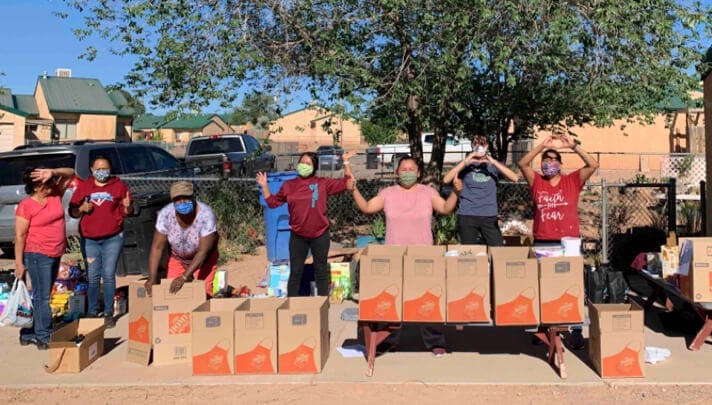
Volunteers with Chinle Planting Hope pack care packages with food staples and donate them to elderly Navajo in the local Chinle area. (Source)
February 1, 2021 ~ By Shari Rose
The Navajo Nation is disproportionately affected by coronavirus, but you can help by donating to these indigenous relief organizations.
As of January 31, 2021, the Navajo Nation has reported 28,325 positive cases of COVID-19, and more than 1,000 deaths. Earlier in the month, Navajo Nation publicly stated that it had 75 communities with “uncontrolled spread” during the first two weeks of January.
Staying healthy and socially distanced is extremely difficult on reservation land, as one out of 10 Navajo do not have electricity, and nearly 40% live without running water. Without the ability to consistently wash hands at home, the Navajo, or Diné, people face an uphill battle in keeping their families safe during the pandemic. Poverty further compounds the COVID-19 crisis, as the Navajo Nation poverty rate is double that of the U.S.
Trying to access basic necessities like food, water, hygiene products, and more on reservation land was challenging enough for many Diné already, but the pandemic made access nearly impossible for thousands of people. Grocery stores are few and far between, and many Navajo lack access to reliable transportation. Coronavirus relief groups are doing life-saving work every day in supporting these vulnerable populations. But, they need ongoing support of online donations and food bank relief to fulfill their missions as the pandemic rages on.
Navajo COVID-19 Relief Groups Accepting Donations
-
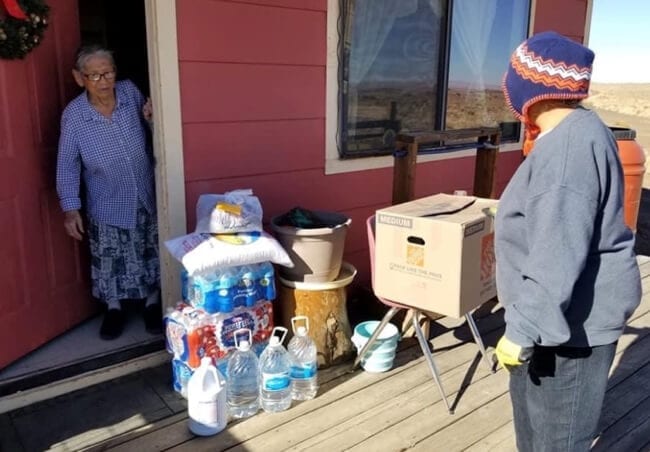
Volunteers with Navajo & Hopi Families COVID-19 Relief Fund drop off food, water, and supplies to an elderly Navajo woman’s home. (Source)
Navajo Nation COVID-19 Response Donation Fund: As the Navajo Nation’s official COVID-19 aid effort, this fund accepts online donations and donations by check. It also accepts relief in the form of supplies, including non-perishable foods, blankets, cleaning supplies and personal hygiene products. Take a look at their website to learn how you can help Diné people in need: nndoh.org/donate.html
- Navajo & Hopi Families COVID-19 Relief Fund: This donation fund is hosted by Yee Ha’ólníi Doo, an indigenous-led, nonprofit organization that provides relief to Navajo and Hopi families affected by COVID-19. It accepts donations through GoFundMe as well as mailed checks. The relief effort provides food, water, personal protective equipment (PPE), cleaning supplies, toiletries, and more throughout Arizona and New Mexico. For those in the greater Phoenix or Albuquerque areas, you can volunteer to help with this form. Learn more about the important work this group is doing by visiting their website: navajohopisolidarity.org
- Navajo Water Project: Having running water in the home is critical to allowing families to socially distance at home and stay healthy. Registered as an official enterprise on the Navajo Nation, the Navajo Water Project is an indigenous-led effort to provide clean, running water to Diné homes without it. Organizers add a 1,200 gallon water tank, plumb the house, and install a sink fixture within 24 hours. In addition, they train the household with practical knowledge with how to make simple repairs: navajowaterproject.org
- McKinley Mutual Aid: Serving greater McKinley County in New Mexico, McKinley Mutual Aid is an intertribal, non-profit organization that provides vulnerable indigenous populations with care packages containing food, water, sanitation kits, PPE, and more. It prioritizes a range of groups who need the most help, including the elderly, immunocompromised, and those without running water at home: ourindigenouslifeways.org
-
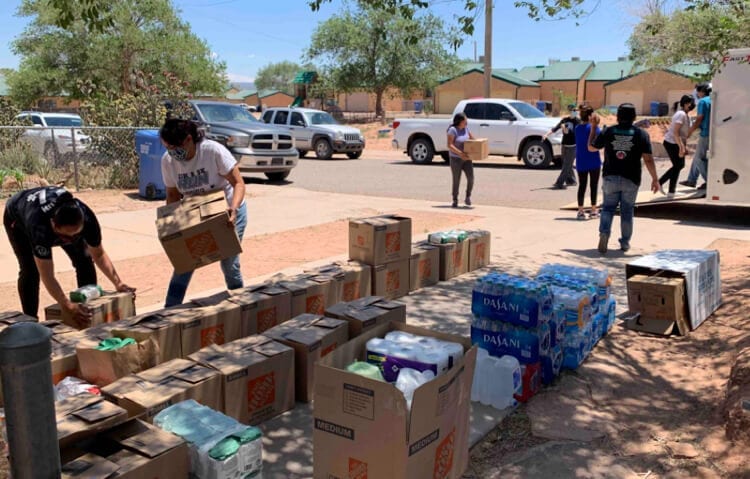
Volunteers with Chinle Planting Hope organize care packages filled with food, water, toiletries, and more. (Source)
Chinle Planting Hope (Food Baskets for Elderly): This nonprofit organization provides hot meals and emergency food baskets to elder populations in the greater Chinle area of the Navajo Nation in Arizona. In early January 2021, Chinle Planting Hope believed it had to cease its COVID Relief Project as funding slowed, but it announced on the 14th that it is back up to full production after an influx of donations came through at the 11th hour. Learn more about the work they do in partnership with the Chinle Senior Center on their website: gofundme.com/f/support-for-elderly-on-navajo-nation
Know of another COVID-19 relief organization that supports the Navajo Nation or other American Indian tribes? Let me know at [email protected].
Share this story
 |
 |
 |
 |
 |
 |
Related story: Baby’s First Laugh Ceremony: A Joyful Navajo Tradition
More stories: The Cruelty of U.S. Migrant Detention Facilities in 2020
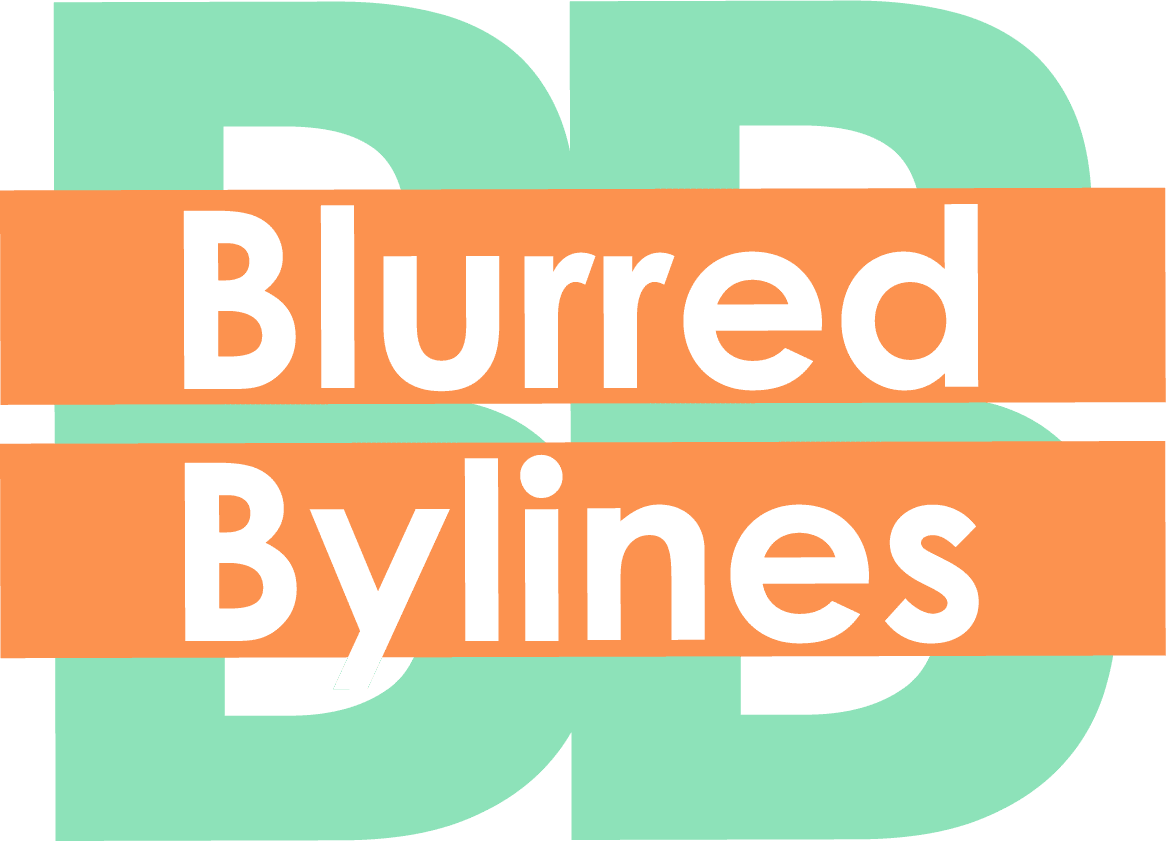
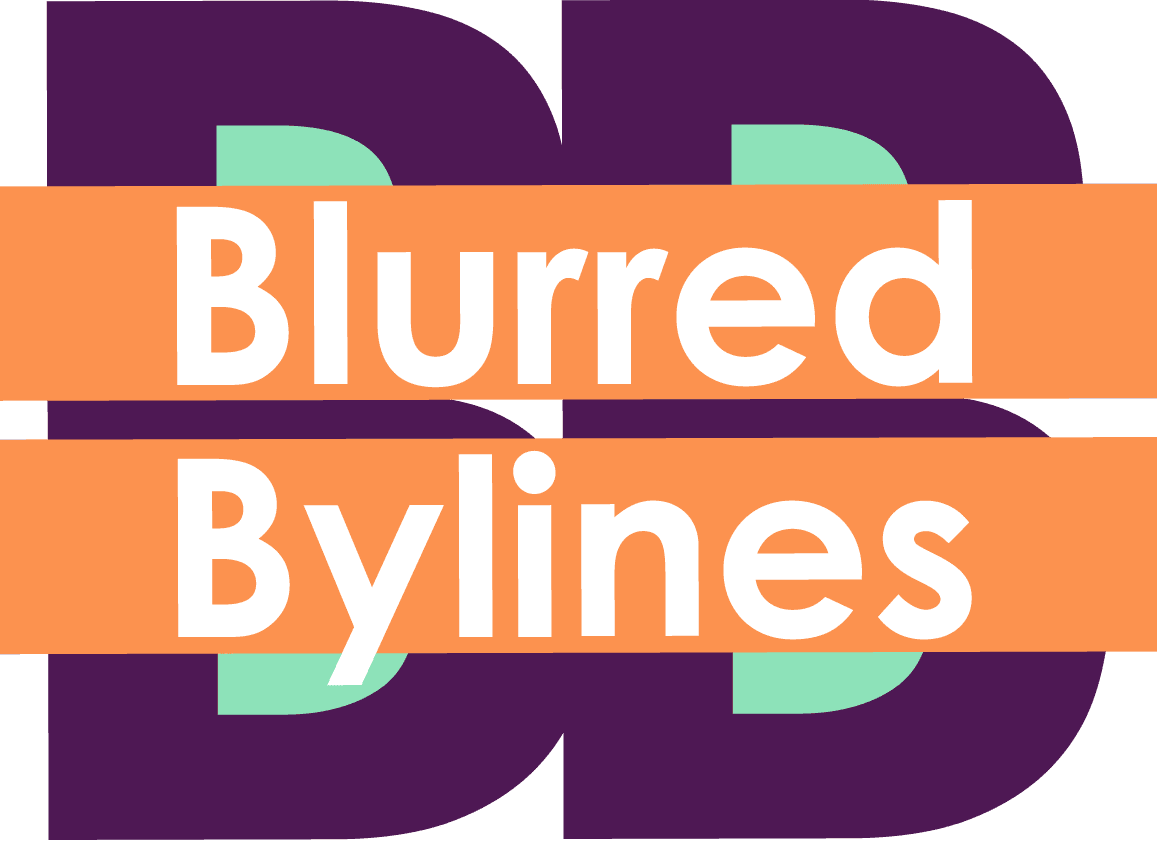



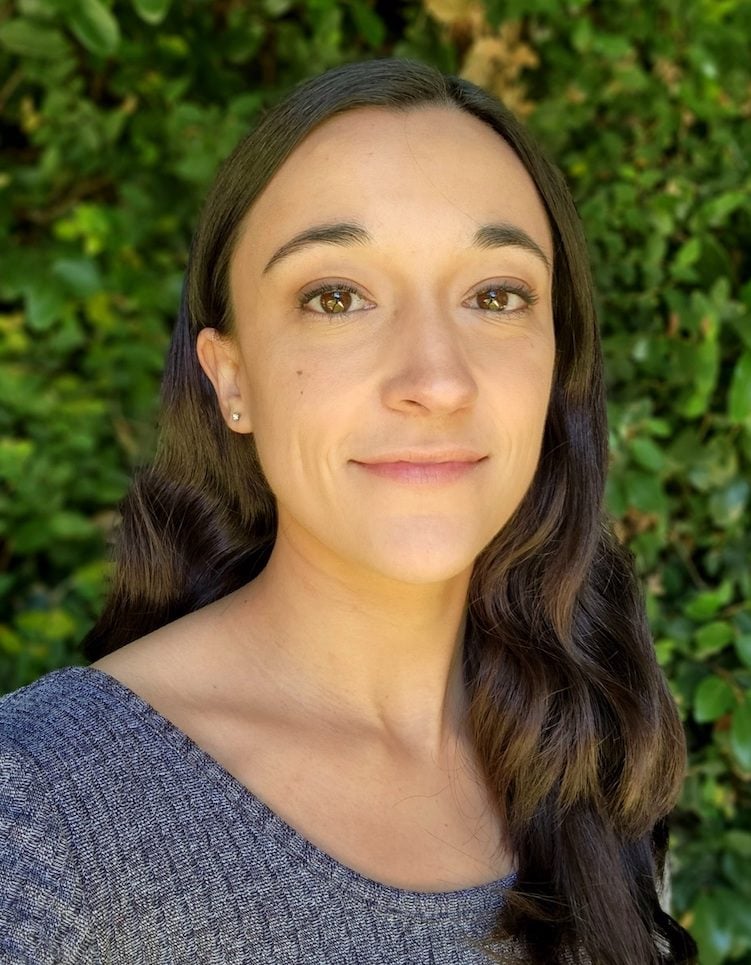
0 Comments